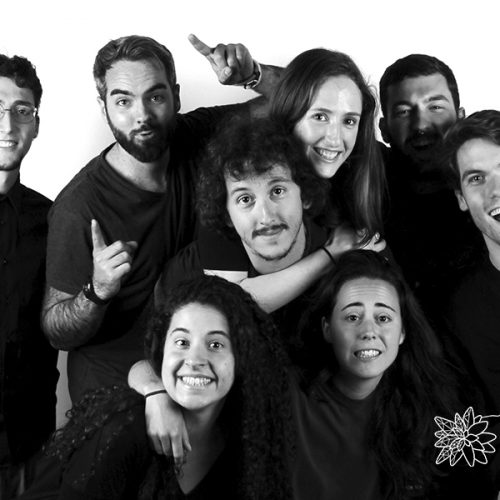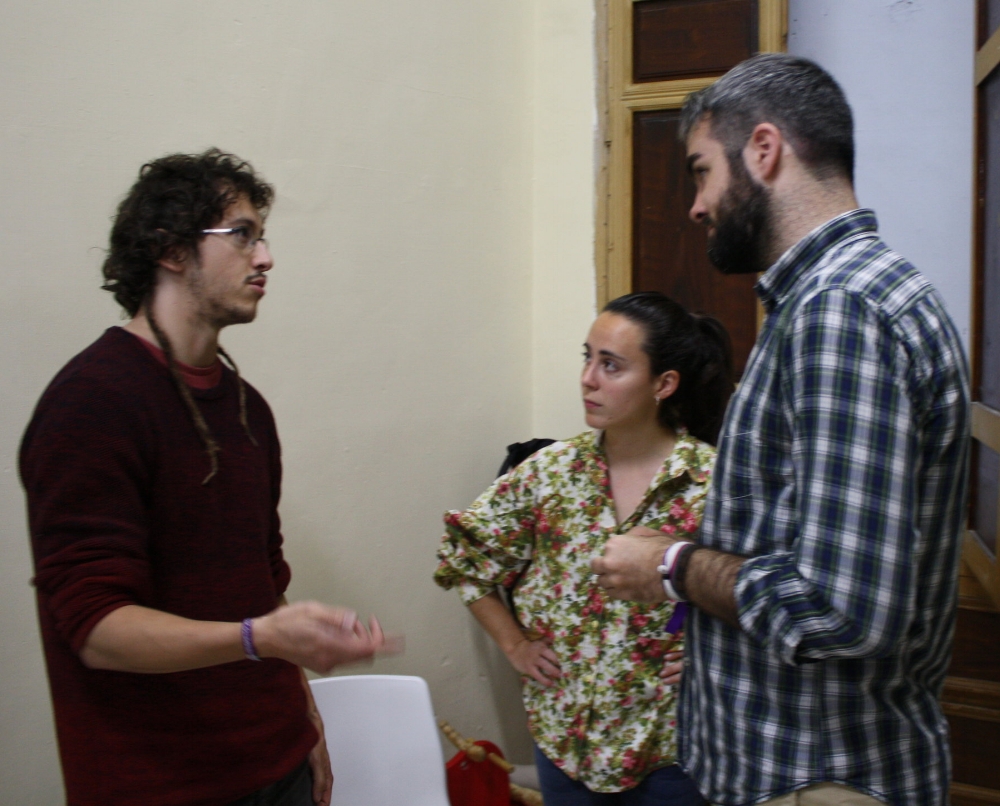
Cultural Competence Part III (Acquiring Competences)
Dear Marina,
I know we have been talking about it now for ages, but like I said in the introduction to cultural competences, I love this subject. It is the idea that a person is able to break out of what she finds ‘normal’ in order to be able to create more meaningful/productive/etc. relationships with people around her. I think it is something that is incredibly important for a good abroad experience, but it is also beneficial in professional situations in your future. However, this may not be as easy as it sounds.
For example, even though she has been here for years, Dani has been frustrated lately with the banking system in Spain as she is supporting her boyfriend in the process of buying a house. It is really hard in situations like these not to get caught up on the idea that they are trying to make your life difficult, but that it is how things work here.
As you can see from this example, the process is never ending. Although some things may be easier to understand and get used to (or maybe not as my dad still gets frustrated as he tries to quickly checkout at the supermarket), other things seem to be inherently ‘wrong’ when you are looking at it from a different culture. However, as we have looked into self evaluation of cultural competences, we know that there is no ‘right’ way to do most tasks but that a plethora of options can all be ‘right.’
How do you get there? Try these five simple exercises to get started*:
1. Recognition of Culture: I know I’ve said it before, but the most important step in acquiring cultural competences is by recognizing culture as being something real that truly impacts your perception on the word. Importantly, you have to recognize your own cultural prejudices, but you also have to realize that other people have same-but-different prejudices too. This means that every time something happens to you, you should question if it is truly something ‘wrong’ or ‘right’ or ‘good’ or ‘bad’ or whatever opinion you may have about it, or if it is just something ‘different.’
For example: Meeting with people who arrived late in Spain is something that used to really make me mad because I felt like people weren’t being respectful of my time. However, I now truly believe that it is the different interpretations of the same thing that is the problem, not my expectations or someone else’s actions. If I am able to accept the situation ‘as is’ without getting overly concerned about it, I am much happier than if I want an entire culture of people** to change their ‘normal.’
2. Role Playing: If you are able to put yourself in someone else’s shoes, you are more likely to understand their point of view and empathize with them. This is especially true if you are faced with a situation you really don’t agree with. So, even if you are alone, consider acting out the situation from another person’s point of view before you automatically assume you know what they are thinking.
Think about it: My mom always tells me that we cannot judge people by our interaction with them—we have no idea what they are going through or how their day has been. Trying to role play a situation and struggling to put yourself in the other person’s shoes is a good reminder that we really never know exactly where other people are coming from. Even in non-multicultural situations it is important to be aware of the idea that there are so many factors in the lives of others that we cannot assume we know what is really going on.
3. Cultural Immersion: If you are already abroad, then you are in a great situation to work on advancing your cultural competences! By immersing yourself in a culture you are able to get perspective on a situation that would otherwise be difficult to obtain—you will be forced to see differences all around you in every situation and, hopefully, you will begin to understand that differences aren’t necessarily bad, just different.
For example: In countries where they eat with their hands, cultures have specific rules about how to eat. You can read about these norms in a book, however, if you are there, eating along with people who value these rules, you are more likely to understand and respect them because you can see the value of them, ask questions if necessary, and connect to the people.
 4. In-Depth Conversations: Friendships and conversations are two of the most important ways to overcome stereotyping. I have actually researched this more in terms of homophobia and racism, but I am pretty sure it can be applied to lesser levels of misunderstanding as well. I personally love to talk about cultural interpretation and religious habits with people—even when I don’t agree with them—because it helps me open my eyes to something that I might not have imagined before.
4. In-Depth Conversations: Friendships and conversations are two of the most important ways to overcome stereotyping. I have actually researched this more in terms of homophobia and racism, but I am pretty sure it can be applied to lesser levels of misunderstanding as well. I personally love to talk about cultural interpretation and religious habits with people—even when I don’t agree with them—because it helps me open my eyes to something that I might not have imagined before.
Think about it: If a random stranger comes up to you and starts telling you why the political system in the U.S. is terrible (true story), you are probably going to be pretty ticked off and have no interest in talking to him or her about it. However, if someone you care about brings up the subject in a respectful way, you are more likely to invest yourself into seeing their perspective (even if you never reach agreement).
5. Personal Reflection: Reflect on what you think, how you speak, and your actions because you might be communicating in ways you cannot imagine. Even if you are being really clear in your mind, those around you might interpret things differently, and this is normal. Even in a uni-cultural society, people are not all the same—we cannot expect one size of personality and perception to fit all people. Therefore, it is important to know what you would like to communicate and to try and do the best you can to convey that to others. Know that you will make mistakes and may be misunderstood, but that as long as you learn from your experiences, you are doing okay.
You might be wondering: Is it possible for cultural opposites to be reasonable? I honestly think so.
Think about it: If being a night owl and an early bird are both reasonable ways to live your life, why shouldn’t other opposites be acceptable. Remember, you are incredibly culturally conditioned to believe in the ‘truths’ that you know, but these are not necessarily the same around the world. Be open to the idea that your truth is right…for you. And that it might not be right for someone else.
What do you think? Are you ready to get out there and try to up your cultural competence game?
Sincerely,
Spain
*Obviously there are a bunch of ways to improve your cultural competences and these are not necessarily even the most effective. However, they are fairly straight-forward options that are simple to put in place, hopefully allowing you to advance in your cultural competence experience.
**Not all Spanish people are late, and I have many friends who despise tardiness, but it is something that is more socially accepted here.




